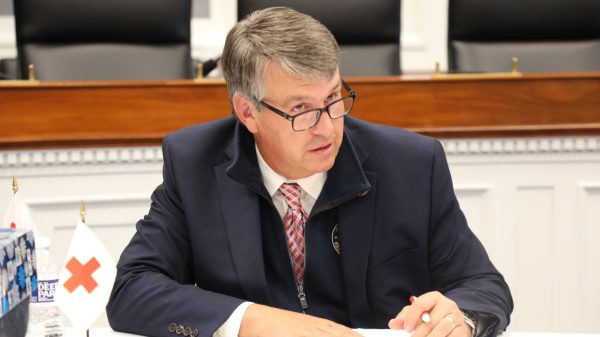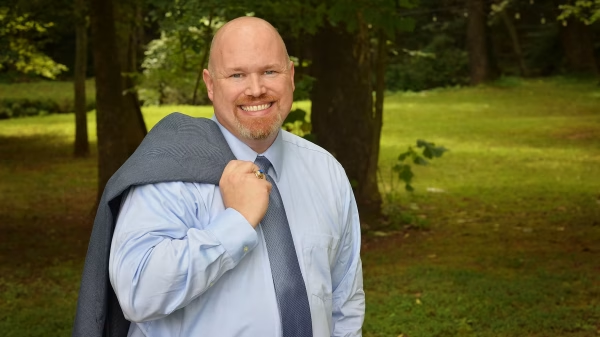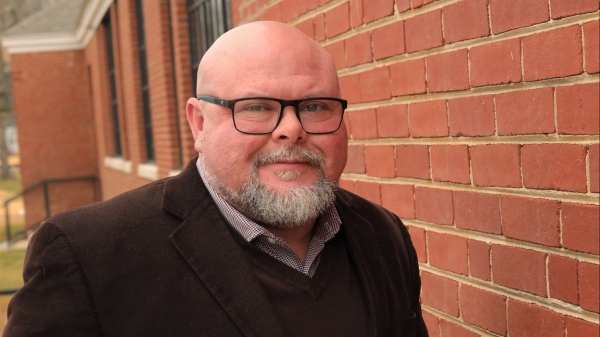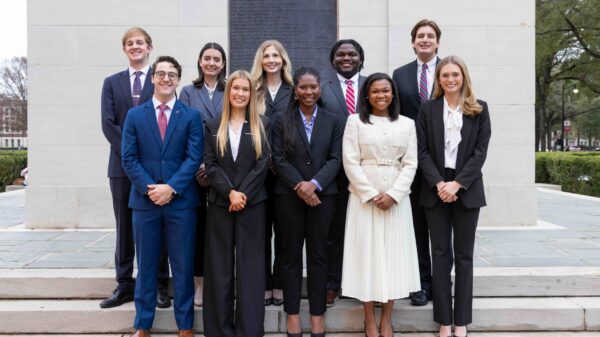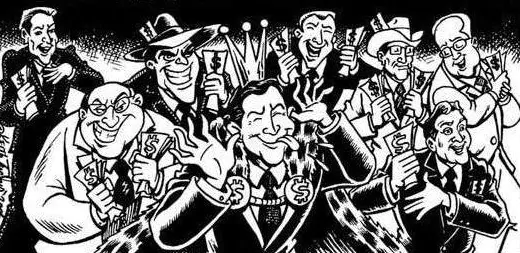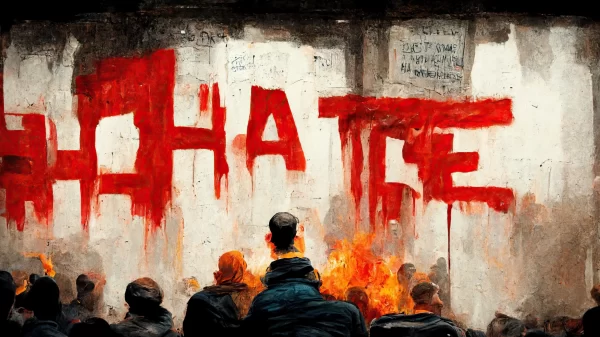By Bill Britt
Alabama Political Reporter
MONTGOMERY—When US Representative Mike Rogers accused Attorney General Luther Strange of practicing Chicago-style gutter politics, his analogy was flawed, because Alabama ranks higher than Illinois in public corruption, according to the latest survey.
A new study measuring state-by-state Legal and Illegal corruption was released earlier this month by Harvard’s Edmond J. Safra Center for Ethics.
The 2014 study conducted by Oguzhan Dincer and Michael Johnston found that Alabama ranked Forth, ahead of Illinois and New Jersey in Illegal Corruption and Sixth just ahead of New Mexico and New York in Legal corruption.
(Notably, the study was conducted before Speaker Hubbard was indicted on 23 Felony counts of public corruption)
The methodology behind the study was based on a survey of reporters and investigative journalists in each state, rather than the usual reliance on Federal crime statistics. The authors point out that statistics kept by the Department of Justice only consider convictions by Federal law enforcement and do not take into account state prosecutions.
They also note that “Federal prosecutors have considerable discretion over how much effort to put into investigating public corruption. The number of convictions depends not only on the level of corruption, but also on levels of prosecutorial effort.”
The authors identified close to 1,000 reporters through an extensive search of the internet, as well as obtaining assistance from Investigative Reporters and Editors, Inc. (IRE).
The perception-based research used reporters rather than trial lawyers or other professional groups because, “reporters have a better knowledge of state governments and spend a great deal of time observing the government officials and interacting with them.”
The survey measures two specific forms of corruption: Illegal and Legal. Illegal corruption is defined as, “private gains in the form of cash or gifts by a government official, in exchange for providing specific benefits to private individuals or groups.”
While Legal corruption is, “political gains in the form of campaign contributions or endorsements by a government official, in exchange for providing specific benefits to private individuals or groups, be it by explicit or implicit understanding.”
Due to ethics reforms passed between 2010 and 2014, Alabama law does not require a proof of Quid Pro Quo for an act to be considered illegal.
Reporters were asked to rate the level of Illegal or Legal corruption in the Executive, Legislative and Judicial Branches of government as not at all common, sightly common, very common, moderately common and /or extremely common.
Illegal corruption in Alabama’s Executive Branch was found to be “moderately common” along with California, Illinois, Florida, Texas and three others. In Arizona and New Jersey, Illegal corruption in the Executive was rated, “Very common.”
In Alabama’s Legislative Branch, Illegal corruption was ranked as “very common,” even ahead of New Jersey, California, Illinois, New York and many of the usual suspects.
The survey shows “State Legislators are perceived to be more corrupt than the members of the Executive Branches in a number of states.”
As for Illegal corruption in the Judiciary, Alabama scored “slightly common.”
Overall, in Illegal corruption, Alabama ranked Forth highest, above Illinois, New Jersey and Seven other states.
“Legal corruption” is further defined in the survey quoting Lawrence Lessig, Professor of Law at Harvard Law School, and Director of the Edmond J. Safra Center for Ethics at Harvard as, “…manifest when there is a systemic and strategic influence which is legal, or even currently ethical, that undermines the institution’s effectiveness by diverting it from its purpose or weakening its ability to achieve its purpose, including, to the extent relevant to its purpose, weakening either the public’s trust in that institution or the institution’s inherent trustworthiness.”
In this category, Alabama ranked Sixth just ahead of New Mexico and New York.
In this category, Alabama’s Executive Branch scored, “moderately common,” whereas New Jersey and Kentucky ranked “extremely common.”
In Alabama’s Legislative Branch “Legal corruption” was found to be “extremely common,” along with Illinois, New Jersey, Nevada, New York and two other states.
Legal corruption in Alabama’s Judicial Branch was ranked as “moderately common.”
Only Nevada’s Judiciary ranked “very common.”
In most states, Legal corruption among the Judicial Branch was ranked as “sightly common or “not at all common.”
In aggregating the results in the survey, the authors note that “some information lost,” but it is important to ask, “What are the most and least corrupt states, taking all three government branches into account?”
In both categories, Alabama showed poorly, coming in Forth in Illegal corruption and Sixth in Legal corruption. The survey shows that Mr. Rogers will need to find another analogy in the future.
Bill Britt and Brandon Moseley were contacted by those who conducted the Harvard study to participate in this nationwide survey.

